Interview: Stephen Tobolowsky Having A GOOD DAY After Bonding From Nightmares
L.A. Theatre Works will release their state-of-the-art audio recording of Stephen Tobolowsky’s A GOOD DAY AT AUSCHWITZ June 2, 2021
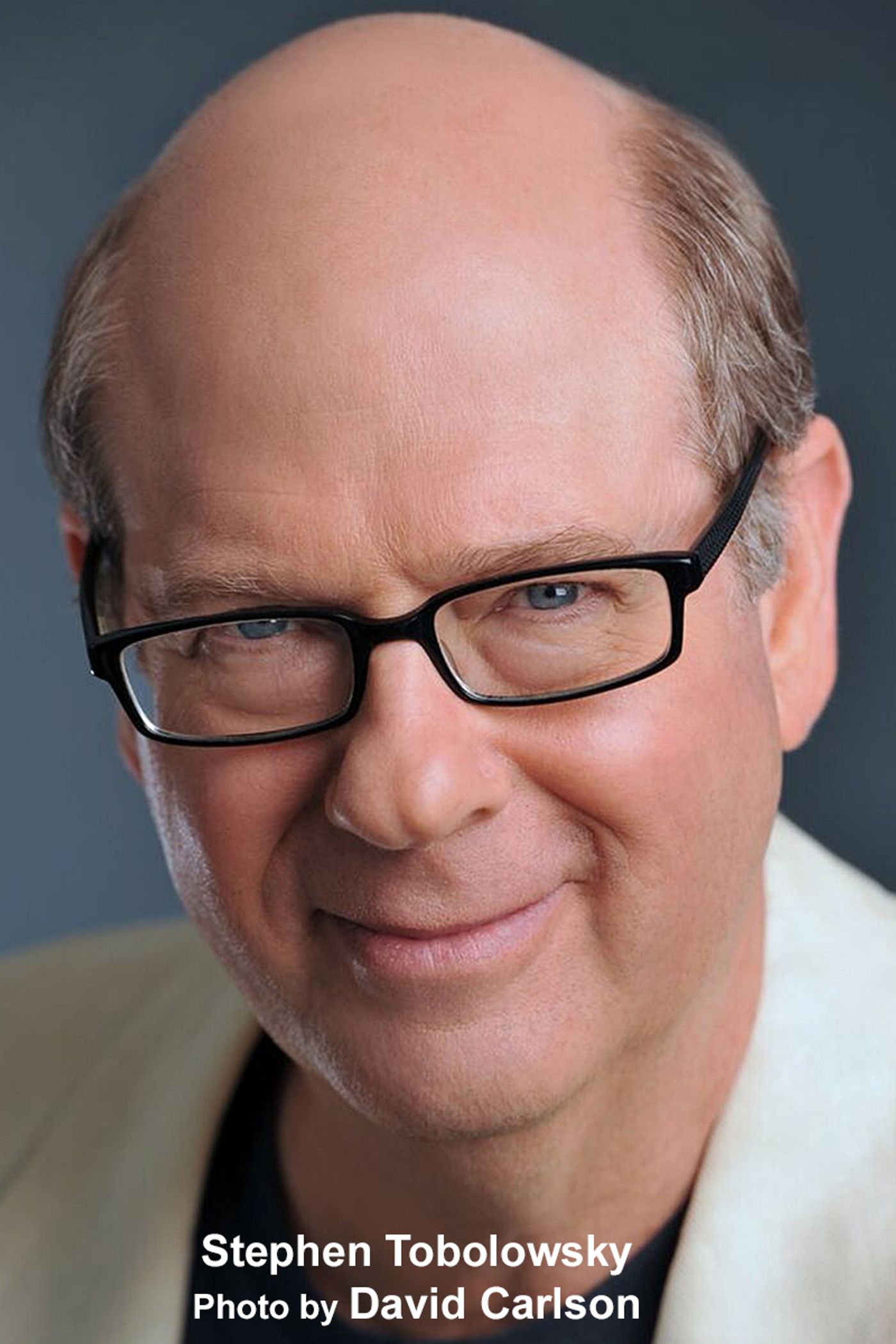
L.A. Theatre Works will release their state-of-the-art audio recording of Stephen Tobolowsky's A GOOD DAY AT AUSCHWITZ June 2, 2021. Based on a true story, Stephen has adapted GOOD DAY from his previous book My Adventures with God.
Stephen managed to find some time between his podcast The Tobolowsky Files, his many film and TV commitments, and being half of a beloved Los Angeles theatre acting/directing couple, to answer a few of my enquiries.
Thank you for taking the time for this interview, Stephen!
You met Abe, the subject of A GOOD DAY AT AUSCHWITZ, in 2007 at services at Adat Ari El in Valley Village. What may you decide to write your book My Adventures with God before writing this play A GOOD DAY AT AUSCHWITZ?
Simon and Schuster. Ben Loehnen, my editor, asked me if I could follow up my first book The Dangerous Animals Club with a book that had themes relating to faith. My Adventures with God was the result. There is an advantage to starting with the story and not the play. When you write a story, it's done. All you need is someone to read it. When you write a play, you need to find a theater, a director, a cast - the works. However, a play is better than a screenplay. Then you need all of the above plus several million dollars.
When did you complete your final draft of A GOOD DAY?
I finished the final draft of the play around September 2017. Alan Mandell (who plays Abe) and I had a first public reading at the Road Theater that December. We did it as a fundraiser for them.
This L.A. Theatre Works production is A GOOD DAY's world premiere. Did you get the chance to workshop A GOOD DAY in a live setting pre-pandemic?
Not in the traditional sense. I guess writing the story for the book became the workshop. That process instructed me as to what the key elements of the story were - elements that had to be in the play. Alan and I had some face-to-face rehearsals, usually at Alan's home. Most of our rehearsals were via ZOOM.
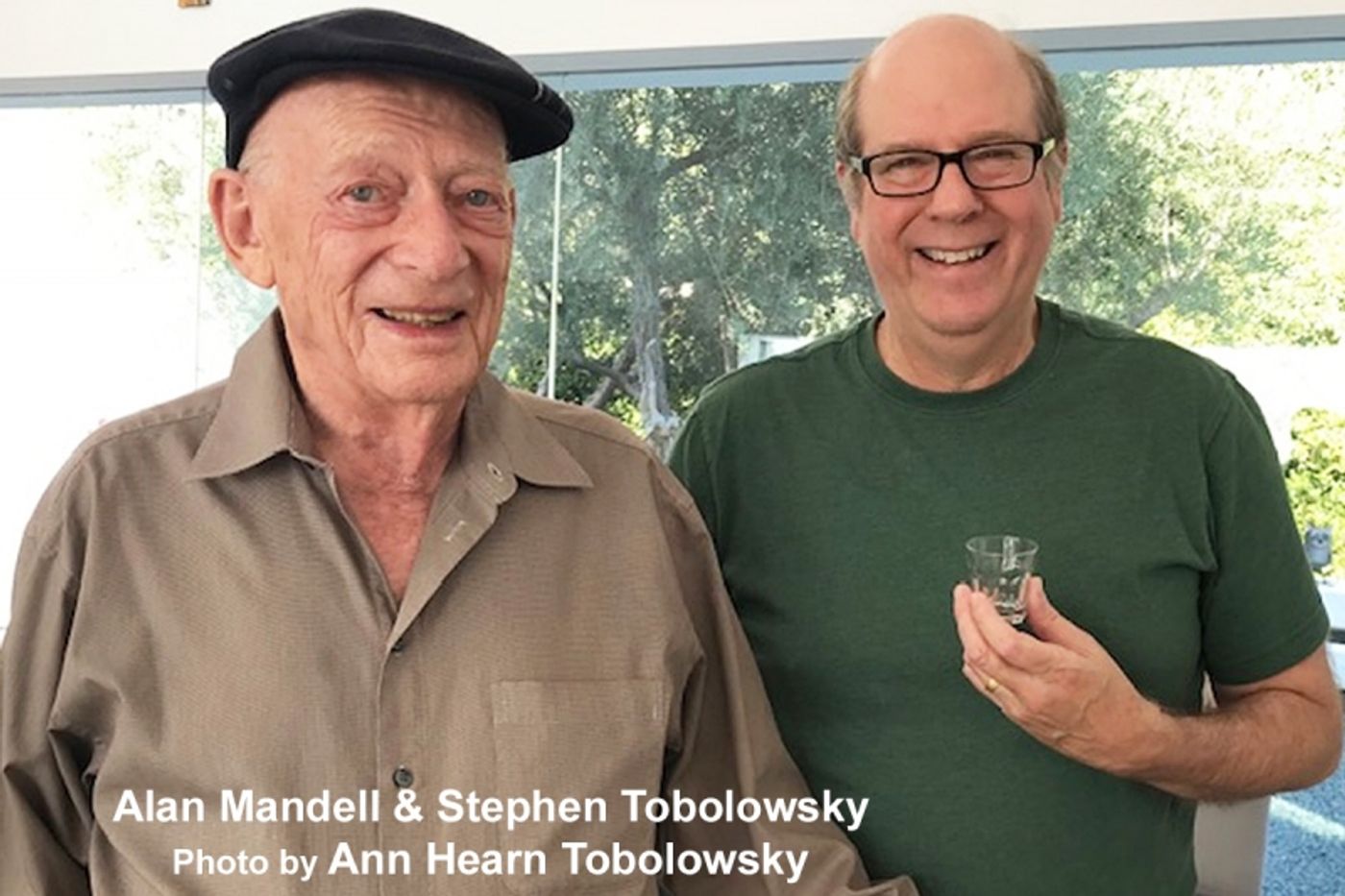 When did you record A GOOD DAY AT AUSCHWITZ?
When did you record A GOOD DAY AT AUSCHWITZ?
We did our final recording of the play for LATW March 16 and 17 of 2021.
Were you, Alan Mandell and foley artist Jeff Gardner recording in the same room? Or separately via Zoom?
Never in the same room. Ever. I was so lonely, I longed for ZOOM. The only person I saw regularly at the studio was Tito, the COVID monitor. I knew people were there. Our director Anna Lyse Erikson was in my headphones. Alan was in the building. I saw his car out back. We never did a scene face-to-face. Jeff Gardner, the foley master, was probably nearby, but the actual foley was added after Alan and I recorded the entire play. As I understand it, the unusual recording techniques weren't entirely born from COVID protocols. LATW wanted to create a 360-degree audio soundscape for this production. To accomplish this, Alan and I had to be isolated. We had specific directions as to where and what angle we should speak into the microphones for each scene. It was rather remarkable, technically.
Have you tweaked your script for this audio recording with more audio cues?
Yes. But it was mostly done on the fly. Anna and I wrestled with mid-course corrections - usually cuts - based on the storytelling power of foley. They say a picture is worth a thousand words? Foley is worth at least two hundred.
If you were to submit Abe for a dating website, what qualities of his would you list?
Gregarious, kind, always up for a good time - and still, always, a real gentleman.
What character flaws of Abe would you be sure to omit?
He smelled like matzah balls.
Same question for your other GOOD DAY character of Stephen Tobolowsky - what qualities would you list?
Good sense of humor, loves music, and if you cook - he'll wash the dishes.
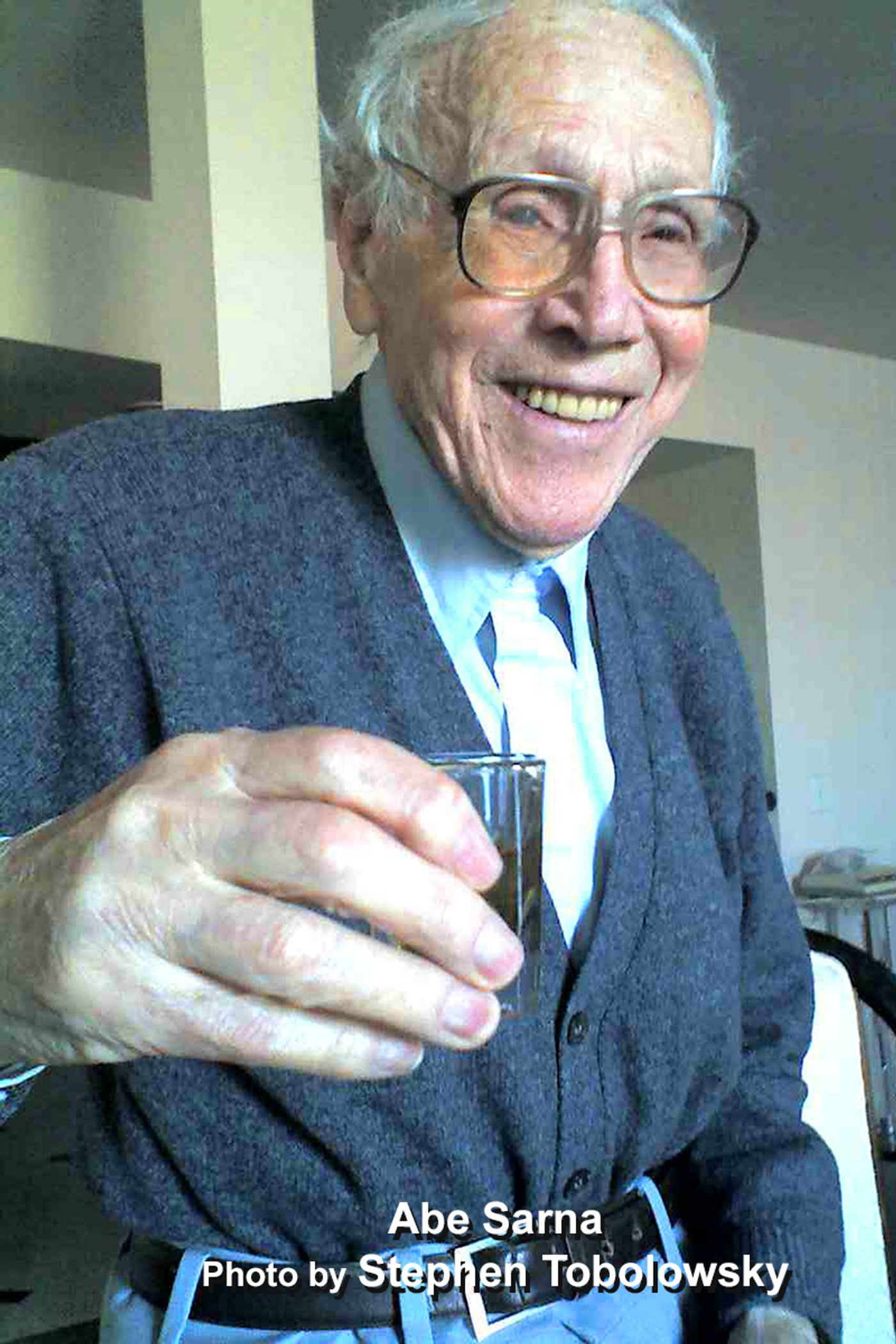 What character flaws of Stephen Tobolowsky would you omit?
What character flaws of Stephen Tobolowsky would you omit?
Can become enraged by inanimate objects: doors, car keys, items in the refrigerator.
It must be a lot easier to memorize Abe's lines since you wrote them, yes?
100%, absolutely, you betcha! (a common Abe affirmation)
When you're acting in someone else's work, do you feel the need to learn your acting partner's dialogue word-for-word? Or do you like to just know the gist of what they're saying?
It's always good to know your partner's lines. They often hold clues as to who you are and what your relationship is. It usually isn't hard to do. There is plenty of time. In the pre-COVID era, LORT rehearsals were four weeks, eight hours a day. On Broadway, you rehearse for eight to ten weeks. After all of that, you can usually mutter the entire play in your sleep.
Would a future production of GOOD DAY be an ideal production for the two actors to alternate roles (à la the Royal National Theatre's FRANKENSTEIN)?
It's possible. There is the age differential. When the story takes place, I am in my fifties and Abe is in his eighties. That could happen in the theater. Especially on a big stage. They certainly would be fun parts to play. Plenty of jokes (actors love jokes). Heartbreak. But there would be lots and lots of lines to learn. I can see the possibility of the actor's nightmare, when one actor momentarily forgets who was in Auschwitz this performance.
Which gives you more gratification: acting onstage receiving audience applause? Or being behind the scenes watching as your actors speak your lines or act the way you directed?
I have found both remarkably terrifying. I say "remarkably" because when you are in a play, there is nothing really at stake - except your dignity. My brother was a doctor, as is my youngest son. They have had to deal with life and death on a daily basis. Not applause. Not to evade your question: being an actor has many more tangible rewards than being a director. When I have put a funny bit into a show as a director - the actor gets the credit when he gets the laugh. That's all right with me as long as the play triumphs.
You've done ninety-nine episodes of your podcast The Tobolowsky Files. Any plans for more?
Yes, I am writing more now. I have settled on my primary theme for the cycle of stories. That comes first. That's the spine that holds a group of somewhat unrelated true stories together. The last group of stories centered around a book written by Carl Jung, Psychology and Alchemy. In it, Jung describes going to an art exhibit of drawings and paintings made by alchemists in the 14th and 15th century. Jung (writing in the 1930's) marveled that one picture depicted an exact dream one of his patients had just told him. In the book they showed the picture. I was horrified. It was an image from a dream I HAD in the 1980's and have never forgotten. That cycle of Tobo Files stories was about the unknowable past informing what we become may become in the future - like me being an actor or a writer.
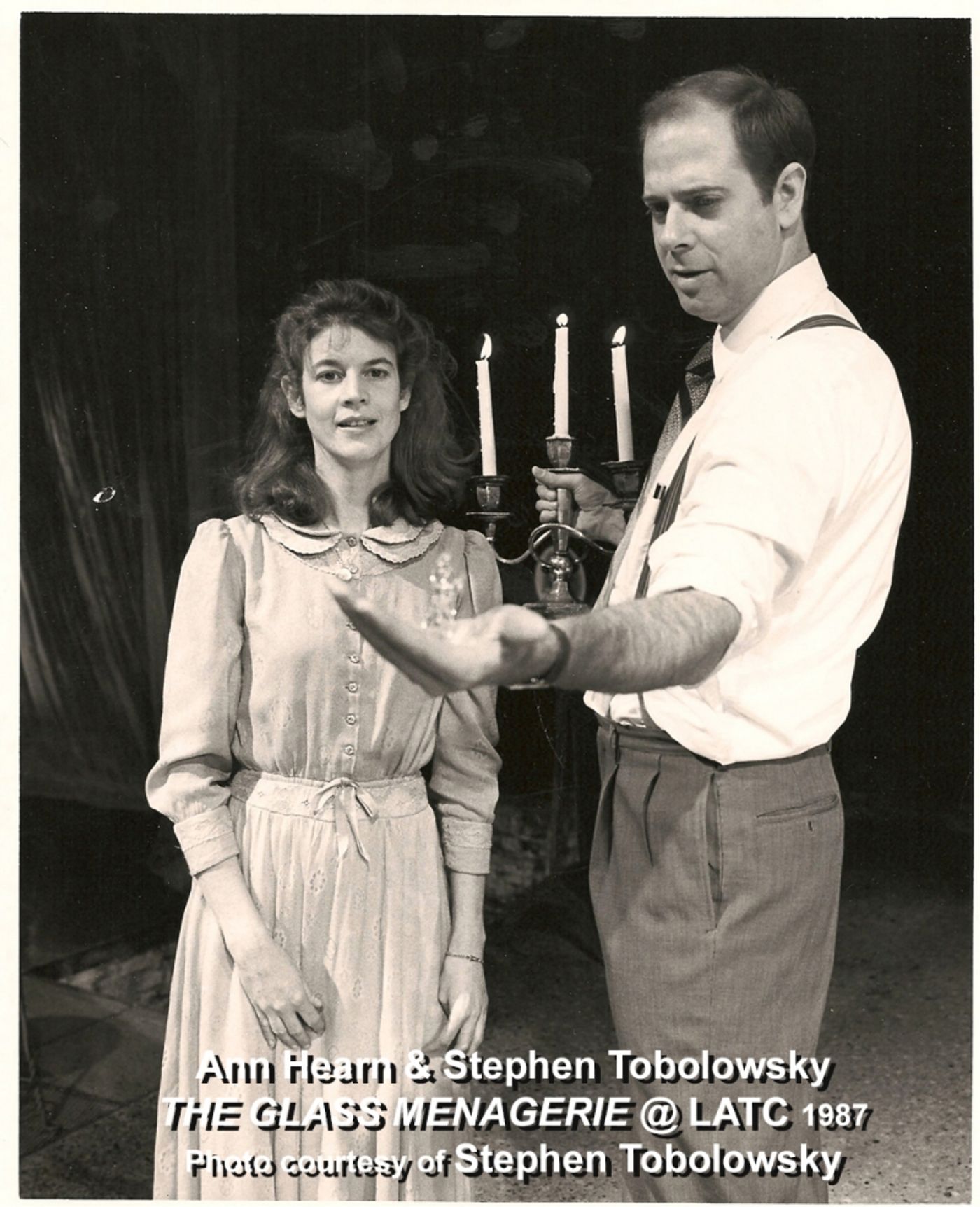 Your wife Ann Hearn Tobolowsky is presently directing REYJAVÍK at The Road Theatre Company. By freaky coincidence, I am also interviewing her for BroadwayWorld. (Read her interview here.) When's the last time you two worked together? MORNING'S AT SEVEN at Theatre 40 in 2019, possibly?
Your wife Ann Hearn Tobolowsky is presently directing REYJAVÍK at The Road Theatre Company. By freaky coincidence, I am also interviewing her for BroadwayWorld. (Read her interview here.) When's the last time you two worked together? MORNING'S AT SEVEN at Theatre 40 in 2019, possibly?
Well, you have to be more specific. You see we both wear many hats now! Annie directed me in THE SPANISH PRAYER BOOK at the Road Theater before the pandemic. People actually saw that in a theater. During the pandemic we played husband and wife in a ZOOM reading of WIDE YAWNING INFINITY by Cheri Magid. She also directed me in two workshops of new Jami Brandli plays VISITING HOURS and THE CAREGIVER'S GUIDE.
Do you like to attend her theatre openings? Or do you prefer to stay low-key and go to a mid-week showing?
Do I like going to Ann's openings? God, no! It's terrible. I am just as nervous as she is, but I can't do anything about it. But I go. When the plays are good, and they usually are when Ann directs, I see them again and again and again. I saw Jami Brandli's THROUGH THE EYE OF THE NEEDLE probably ten times. It was about a family's first Christmas after the death of their daughter who was killed fighting in Afghanistan. The twist is the daughter is still in the house! Walking through scenes. The audience doesn't know who that character is when the play opens. About twelve minutes in, we realize she is the ghost of the daughter and you can hear the entire audience get it at once. What a sound! And the tears begin to fall. And the play is also funny. Hard to imagine. Hard to beat. I could see it again right now in fact. Ann did a brilliant job keeping the daughter "alive" until the moment when the play turns on its head.
You two have been married since 1988. What's your secret to your combined longevity?
Probably catastrophe. We have had a series of life-shaking difficulties that have popped up out of the undergrowth every few years. From our first son who was maybe going to need a liver transplant the day he was born - to my broken neck, falling off a horse in Iceland. When I wrote A GOOD DAY AT AUSCHWITZ, I had just lost my mother. Then, I lost my voice and had to have throat surgery. For two months I had to write everything on a pad of paper. Imagine the difficulty of going to a deli? I will never order "pastrami, extra lean, and can I have a potato pancake instead of the fries?" again. Ann and I were lucky. In crisis we banded together rather than falling apart. You tend to develop an admiration for a partner who is unafraid to face the nightmare.
Would you describe the first time you two met? In 1985 when you directed her in THE DEBUTANTE BALL at South Coast Rep, maybe?
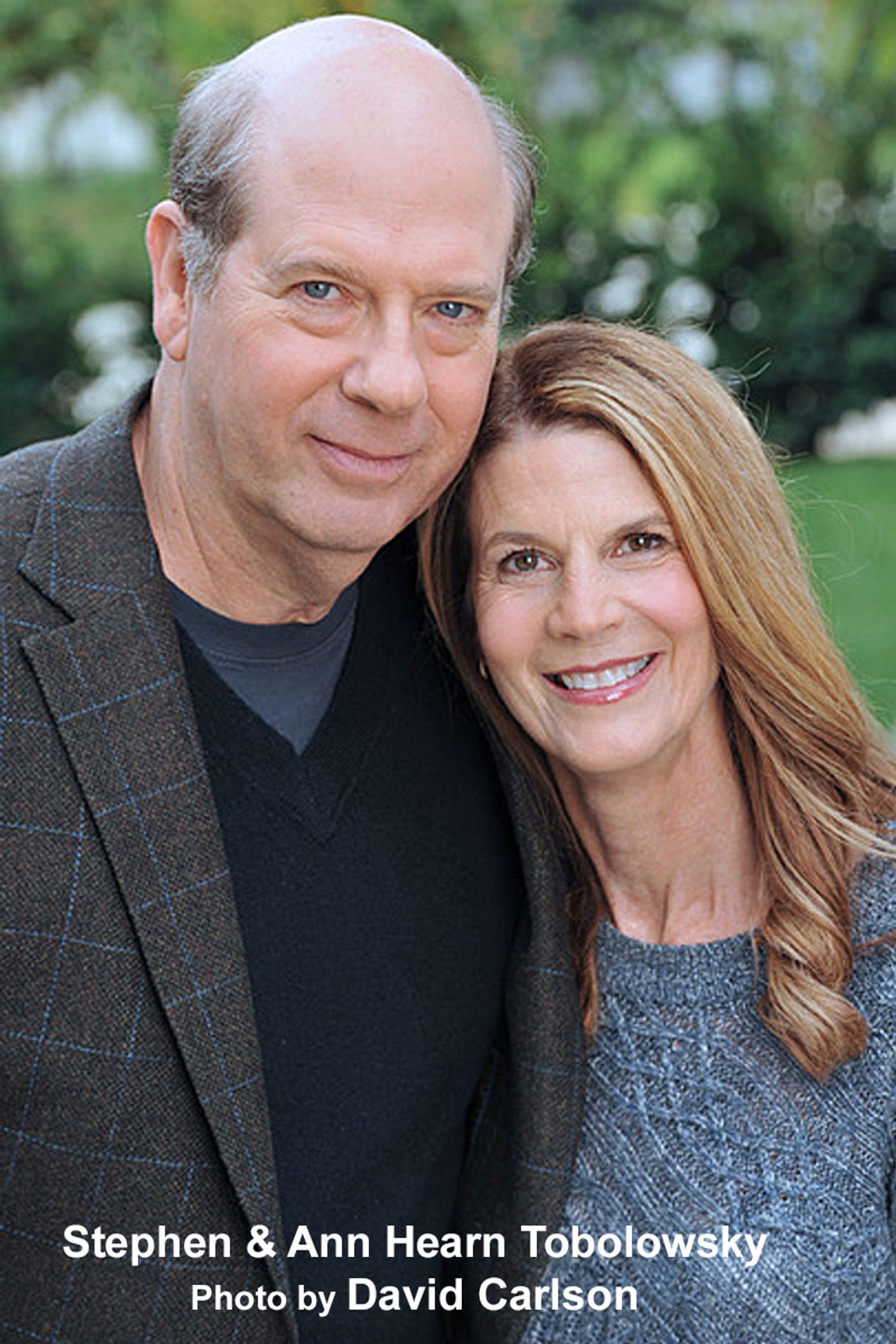 That has always been a subject of some controversy and amusement. I am pretty sure the first time I met Ann was at the memorial service in Los Angeles for the great actress and dear friend Susan Kingsley. We had both just worked with Susan. My first impression of Ann? She looked like many of the young starlets that I ran into on auditions. I knew she just shot THE DOLLMAKER with Jane Fonda and Susan. She was probably good. She'd probably come out to Los Angeles to make it big.
That has always been a subject of some controversy and amusement. I am pretty sure the first time I met Ann was at the memorial service in Los Angeles for the great actress and dear friend Susan Kingsley. We had both just worked with Susan. My first impression of Ann? She looked like many of the young starlets that I ran into on auditions. I knew she just shot THE DOLLMAKER with Jane Fonda and Susan. She was probably good. She'd probably come out to Los Angeles to make it big.
Then the story takes an ugly turn. A few months later, I ran into Ann when she was a volunteer working the box office opening night of THE BRIDGEHEAD at The Ensemble Studio Theater. We got into an impassioned discussion at the ticket window in which I made her cry and run out of the theater. In my defense, I should mention it was the only time I ever yelled at a person in public and made them cry - but knowing now that person was Ann, it makes all the sense in the world. Ann follows the rules. Always. (unless she decides to break them.) And the rules were: Your name had to be on her list, on her clipboard, to get into the theater. I tried to explain to her I WAS THE DIRECTOR OF THE PLAY. I HAVE TO WATCH IT. But no... my name was not on the clipboard. Not allowed inside. Come to think of it, she was lucky I didn't kill her.
At some point after the clipboard incident, I saw her in A LIFE at Theater 40. Again, I had no idea it was the same starlet from the memorial or the ticket woman from THE BRIDGEHEAD. She was great in that show. Her performance gave me the confidence to cast her in THE DEBUTANTE BALL at South Coast Repertory because her audition was maybe the worst I had ever seen. Before I had the chance to make her cry again, Martin Benson, one of the artistic heads at South Coast, pulled me aside and said, "Stephen, as a man and a director, you will want Ann Hearn in your play." I have no idea what that meant except - he was right. On stage Ann is a force. Great to act with. Great to have as a director. AND she makes fresh sourdough bread three times a week! Ooops. There's another secret to our longevity.
Any immediate plans to work together again?
All she has to do is ask me. Politely. And not watch Forensic Files when I'm falling asleep.
What's in the near future for Stephen Tobolowsky?
Hopefully, some more jobs after the pandemic. A play would be nice. A play with Ann would be the best. But tomorrow? I will still be cleaning the rabbit cage.
Thank you again, Stephen! I look forward to hearing your GOOD DAY.
This L.A. Theatre Works audio recording of A GOOD DAY AT AUSCHWITZ will be released on June 2, 2021; and can be reserved in advance at latw.org/digital-season.
Videos

